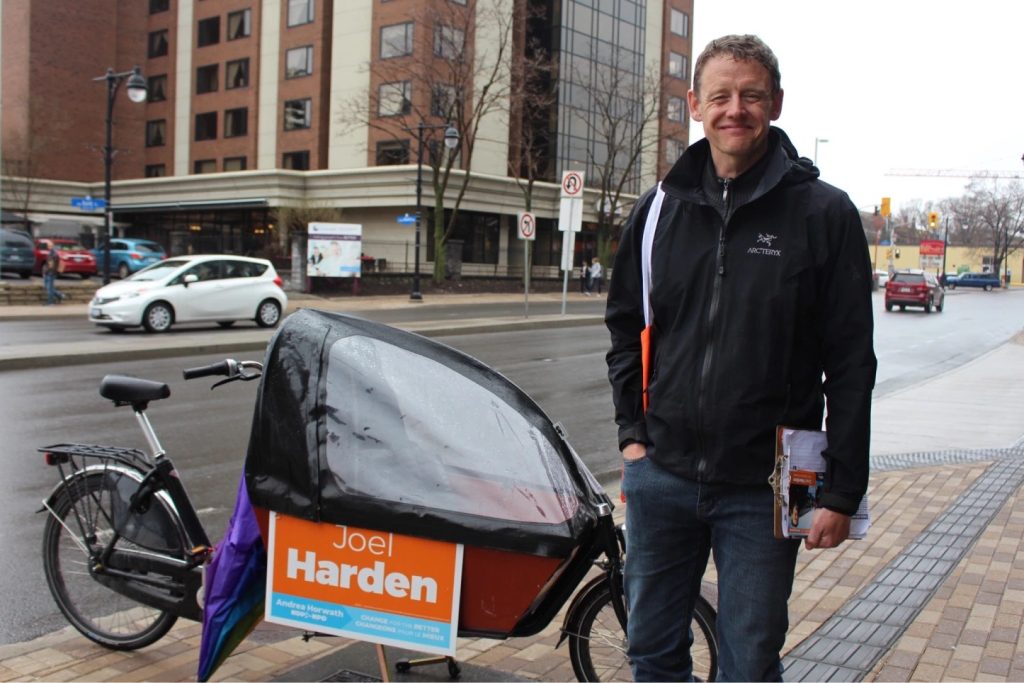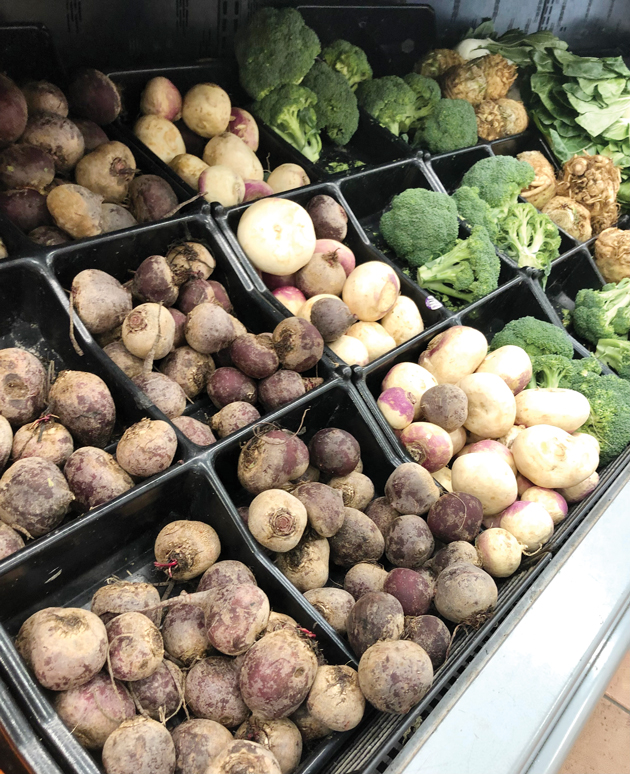
By Charlie Senack
Ottawa Centre MPP Joel Harden says he knows what it feels like to be hungry after participating in a “social assistance diet” for two weeks.
Harden was among five NDP provincial representatives who lived on a grocery bill of $47.60 for 14 days.
“I’m someone from privilege. Our goal was not to highlight our hardship, but to highlight the hardship of people who are living on social assistance,” Harden told Kitchissippi Times. “We wanted to make a case to the government of Ontario that it’s a much better policy to help people have liveable incomes because poverty is an incredibly expensive thing for Canada.”
For two weeks, Harden lived on cheap bread and peanut butter for breakfast, followed by dried lentils and chickpeas garnished with spices for lunch. He admits after the first week was over, the unhealthy diet became more difficult.
While people on government support often rely on food banks and kitchens for a hearty meal, Harden said he didn’t want to waste those resources for his experiment.
“I walked up and down my street and told neighbours if they do a Hello Fresh or Good Food box and have any spices left, to please give me them,” he said. “My sister has a really good garden in the community and she passed me over some vegetables. I have a neighbour who had an apple tree and gave me some apples.”
The five NDP MPPs who participated were Monique Taylor (Hamilton Mountain), Chandra Pasma (Ottawa West—Nepean), Lise Vaugeois (Thunder Bay—Superior North), Jessica Bell (University—Rosedale) and Harden (Ottawa Centre), according to the Ontario NDP’s website.
The grocery bill limit the MPPs set for themselves is roughly what people on ODSP or Ontario Works have to live on for food every week. Harden said it was also based on what the former premier Mike Harris’ government thought was adequate for those with a low income to spend monthly. It also took into account rising costs due to inflation.
When Harden was young, his mother was on welfare after her first marriage fell apart. But according to the Ottawa Centre MPP, that was a different era when government supports made it possible to pay the bills.
“It was certainly not a splendid existence and money was tight, but you could make ends meet,” said Harden. “Poverty is absolutely crushing for a person, and I have some memory of that as a kid. I remember the mental exhaustion and having tense arguments with family when really I was just hungry.”
ODSP recipients receive $1,200 a month, whereas people on Ontario Works receive $733 a month.
Recently, the Doug Ford-led Progressive Conservative government increased ODSP by five per cent, meaning recipients receive an additional $58 every month.
“We increased the ODSP rate to a historic five per cent and aligned it with
inflation, because we know that high inflationary times are troublesome and make it that (much) more difficult for people,” said Kanata-Carleton MPP Merrilee
Fullerton, who is also the Minister of Children, Community and Social Services, at the provincial legislature.
But opposition MPPs say that is not nearly enough. Food prices were up 9.7 per cent this July, noted Harden, and housing costs were up 7.4 per cent.
Harden believes raising the social assistance amount will end up saving taxpayer dollars in the long run.
“It’s an ethical choice, but it’s also a smart economic choice,” he said. “If we were to double what we currently spend on ODSP and Ontario Works, it would be an $8 billion expense for the provincial government. But look at what the cost of poverty is in terms of health care, police spending, incarceration and jail, among so many other things.”
According to a report in 2019, Feed Ontario estimated that the cost of poverty in Ontario was “conservatively estimated” to be between $27.1-$33 billion per year.
Harden is urging Ottawa’s next mayor to support the community kitchen movement if the provincial government isn’t willing to provide social assistance recipients with adequate funding.
“I would like Ottawa to be one of the community kitchen capitals of the world,” said Harden. “A place where we can share the meal together, and where it’s not just the rich feeding the poor. Let’s treat everyone as neighbours.”
Harden ended his two-week social assistance diet with a trip to Bread and Sons on Bank Street, where he spent $10.50 for a sandwich and $2.50 on a cookie. He noted the cost of his one lunch was roughly 25 per cent of his weekly budget when taking part in the experiment.
